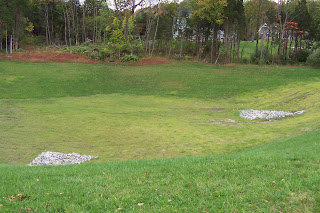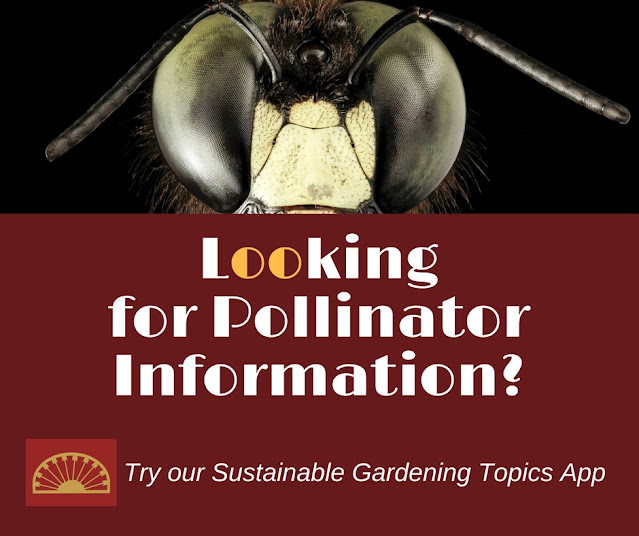In our area, stormwater sewers that serve housing developments and some businesses empty into the dreaded detention (or retention, or infiltration) basin, a visually hideous engineered method of holding large volumes of water until it can safely disperse to groundwater, natural streams, ponds, etc. (top photo). These are generally grass monocultures or rip rap which, if not properly maintained become weedy, overgrown maintenance nightmares. Suffice it to say that anyone who can get away with not maintaining one will continue to not maintain it. Frequently, the town ends up owning and maintaining such basins, meaning that all the taxpayers pay. When grass is used as the only groundcover and pesticides and fertilizers are applied, they can contaminate the runoff. Regular mowing of the basins is difficult because of the steep sides and wet floor. This maintenance adds contaminants to the watercourse, as well. Grass basins also attract undesirable wildlife, such as Canada Geese, which ...



